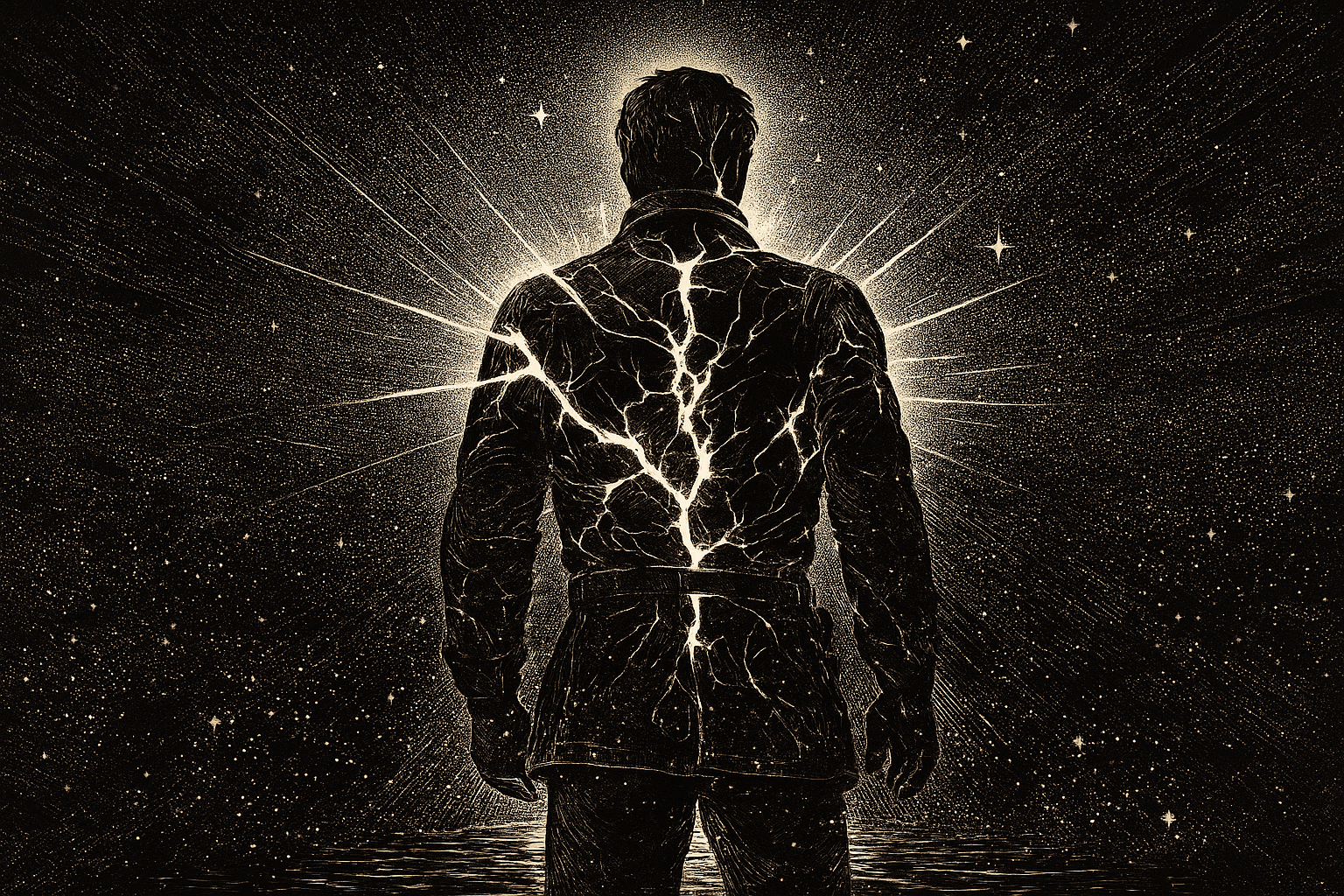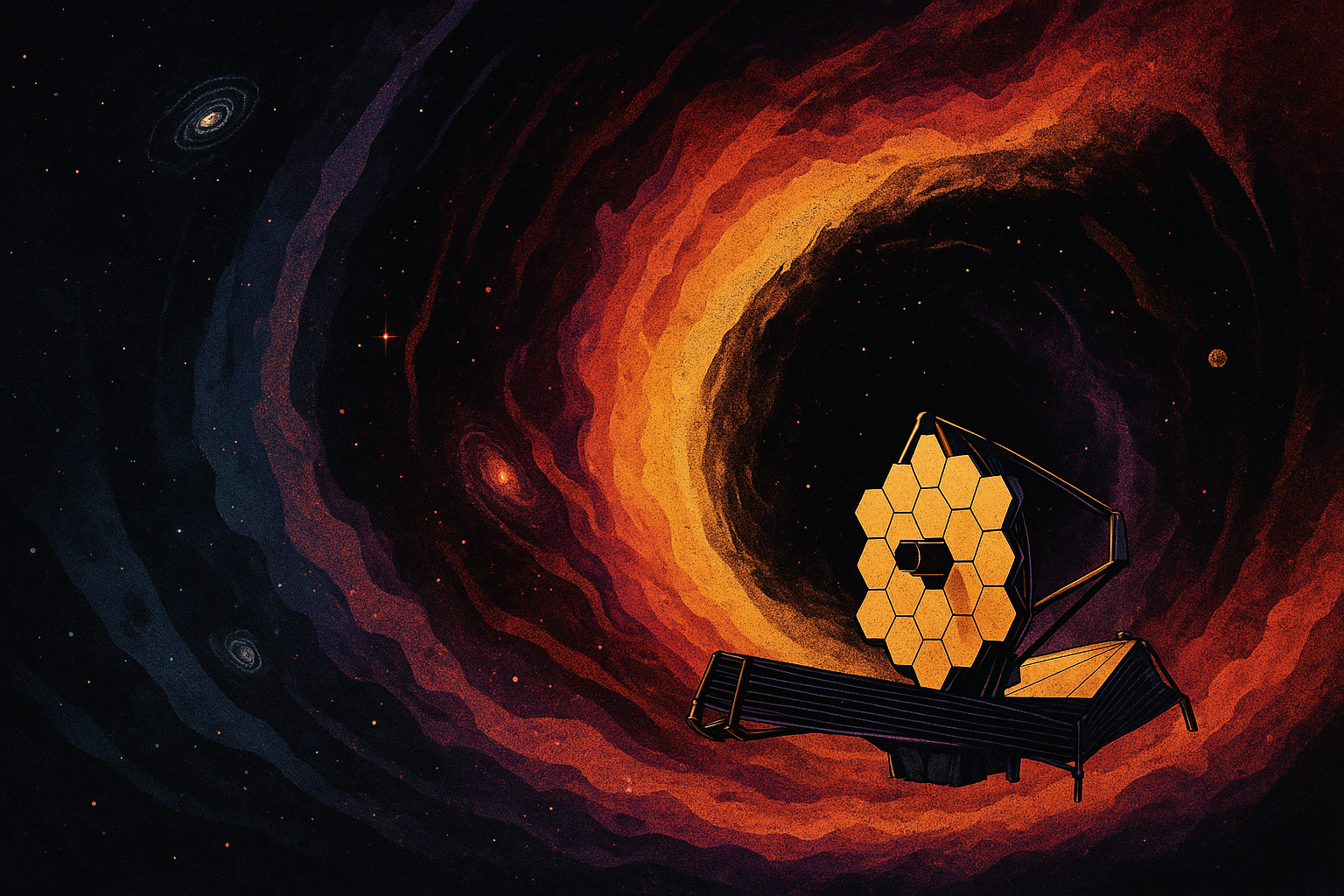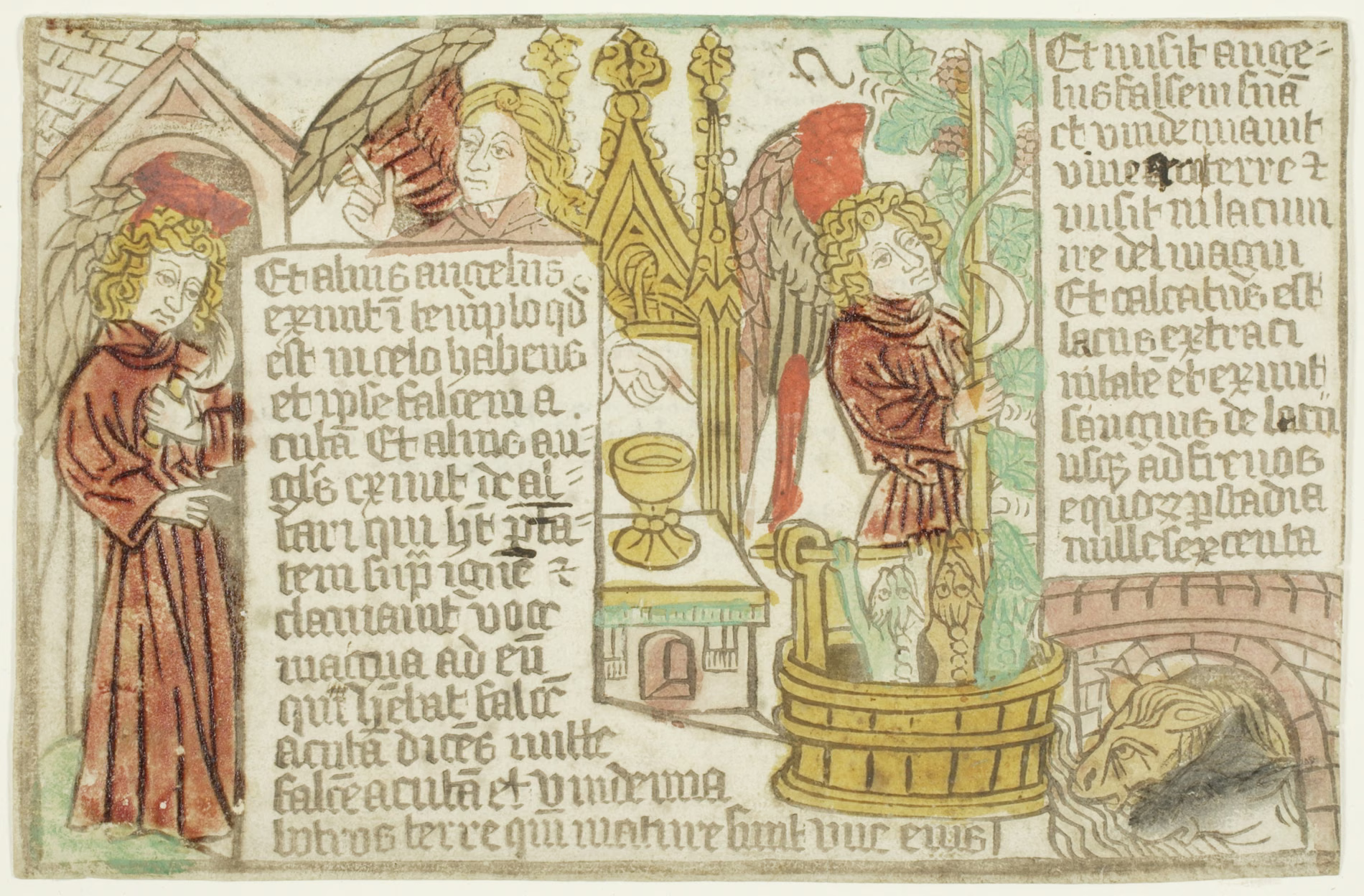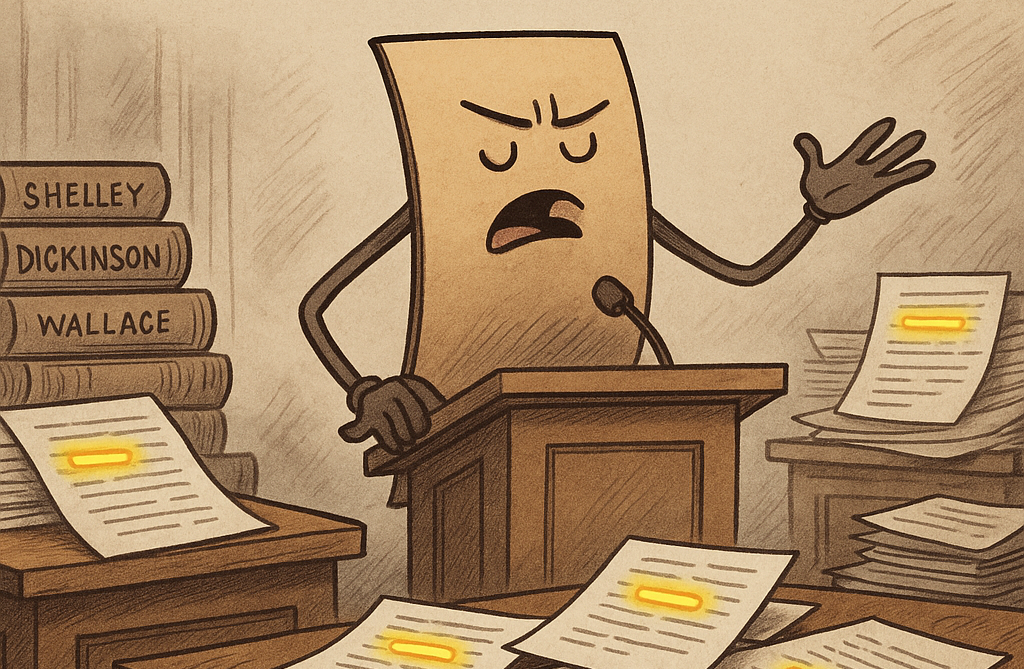Conversations on Science, Culture and Time


Chapter VIII - The Resurgence
After nearly forty years of abandonment, Grimleigh Rock stands ready once more: the stone repaired, the lantern rekindled, the long silence between keepers finally broken. Captain Matthias R. Dane arrives not as an unwitting heir to the Rock’s miseries, but fully briefed on its troubled lineage: the vanished sailor, the unravelling astronomer, the priest undone by visions he mistook for revelation. His charge is to observe, measure, and report with absolute clarity in a place that has never tolerated certainty. Yet the sea does not forget, and neither does the Rock. Old inquiries stir, long-buried records breathe again, and the past returns with a quiet, insistent gravity.
This chapter marks the threshold before the end, the stillness before the storm, as the final keeper steps into the deepening shadow of those who came before him.

Chapter VII - Beneath The Stars
Contrary to the private murmurs exchanged within the halls of Trinity House, Cotter was not a desperate man. He was not some fragile vessel hastily assigned to an inconvenient vacancy and left to endure its toll. Once admired among his Jesuit peers — not for any natural charisma, which he lacked entirely — Cotter had built his reputation upon the discipline with which he approached questions of the divine. He was a meticulous teacher of ecclesiastical Latin, a modest if earnest amateur astronomer, and the author of several obscure theological essays that suggested, controversially, that time itself was a covenant: a grace-imparted structure, vulnerable to rupture should that grace be withdrawn.

Chapter VI - In the Wake of Silence
[…]Vice-Admiral Harrow, for his part, did not settle for a tidy letter and an unsigned report. He launched a private inquiry, and when courtesy was no longer enough, he hired counsel. The solicitor he engaged - one William Rothbridge of Lincoln’s Inn - possessed both a seasoned grasp of maritime law and a sharp eye for procedural fissures. What he unearthed, slowly and with no small resistance, was not a single clerical omission but a pattern - deliberate, buried, and troubling. There had indeed been a keeper stationed before Harrow: a man named Finnegan Gray, whose service record had been sealed without explanation. The final volume of his log was missing from the archives, and in its place, pencilled faintly beside his name in a quarterly ledger, appeared just two words - post suspended.


Chapter V - Of His Subsequent Thoughts, No Written Record Survives
Somewhere beyond the mist, the ship continued on, sails full, course steady. If they had seen the signal - and they must have seen it - they did not respond. The blink pattern from Grimleigh had been deliberate: long-short-short, a textbook salute. But what reached the vessel’s deck may not have matched what left the lens.
Later, when Admiralty logs were reviewed, that same ship - the Freja, registry Copenhagen - recorded a different pattern entirely. Four short flashes, followed by a long pause. A code not used since the days of semaphore. Translated, it meant only one thing:
Do not approach.
But Harrow had written no such warning.

Chapter Four - Latitude 58° 35′ N
The Board at Trinity House received the report with due concern, though not, perhaps, with due haste. A formal inquiry was drafted, then postponed. A replacement was suggested, then declined. The Admiralty, already uneasy about growing merchant traffic along the Danish corridor, applied pressure: the route was too important to leave unwatched, even for a fortnight. But volunteers were not forthcoming. The story of Gray’s disappearance, cloaked in rumour, embroidered by sailors with each retelling, did not lend itself to eager successors. Men at sea are a superstitious breed, and the idea of a station lit but uninhabited, burning through storms with no hand at the helm, unsettled more than it intrigued.
It was through informal correspondence, perhaps passed along a naval quartermaster’s desk or mentioned in one of Portsmouth’s quieter drawing rooms, that the vacancy came to the attention of one Mr Nathaniel Harrow. He had not been looking for employment, but for something altogether rarer: an opportunity to observe, uninterrupted and unrestrained.

Chapter Three - EREBUS
Grimleigh Rock was scarcely more than a splinter jutting from the North Sea - one hundred and twelve yards at its widest, covered in lichen and sea-battered stone. The lighthouse stood at its highest point, squat and wind-scoured, surrounded by little more than iron grating, gull droppings, and the perpetual hum of waves gnawing at the base.
[…]
The following entries are transcribed from a lighthouse logbook recovered during a routine inspection in June 1852. The final dated entry is from mid-May. The lantern was still lit. No keeper came to meet the boat.

Chapter Two - The First Keeper
The snow came sideways that night, flung by a wind sharp enough to shear skin from bone. There had been no stars for days, only the pale smear of daylight that arrived like a rumour and vanished before the eye could catch it. The men had stopped marking the time; their pocket watches ticked, but meant nothing. Somewhere aft, beneath layers of frost-thick canvas, one of the officers was still speaking to God. Another had gnawed through his own glove while sleeping. The air inside the ship was colder than the air without. Breath hung long and low like rope, and every surface stank of damp wool, old meat, and something sweeter that no one wished to name.[…]

Chapter One - What The Sea Took
Somewhere off the Scottish coast, where the Dogger Bank gives way to deeper channels, lies a black tooth of granite known as Grimleigh Rock. It does not appear on common charts. It is uninhabitable, save for the tower built atop it, and even that is a generous word.
[…]
What follows is an attempt to reconstruct the history of Grimleigh Rock through the fragments left behind - the logbooks, the weather reports, the missing persons notices, and the uncorroborated testimonies of passing ships.
Some say the light has never truly gone out…

The Walker Returns
Some of you might not know Craig Mod. That’s quite alright, he’s not the type to shout over the noise. He writes, he walks, he observes. Mostly in Japan. If you’ve ever found joy in the shape of a well-made notebook, the hush of a path through cypress woods, or the dignified stillness of a countryside train station, chances are, you’d find joy in Craig Mod’s world too.
I’ve followed his work for years - in books, in newsletters, in essays that feel less like pronouncements and more like quiet invitations. The Book of Tea and Things Become Other Things still sit nearby, never far from reach. I’ll share a few photos of the latter, not to show off, but to remind myself how beautifully small ideas can grow.
Right now Craig is off walking again. A new solo journey, another slow thread of steps through the Japanese countryside. And yes, he’s writing as he goes. If you haven’t already, I suggest subscribing to his pop-up newsletter, Between Two Mountains (B2M).

Poking Into Nothingness
There comes a moment in thought—if you’re brave, bored, or simply lying awake far too long—when you ask: what lies beyond the universe? And you don’t mean stars, or dark matter, or rogue planets. You mean the edge. The boundary. The membrane beyond which there is no ‘where’, no ‘when’, no ‘what’. And when your thought reaches that point, something inside you recoils. A silent dread. As if your mind has brushed against something it wasn’t meant to. Most people turn back. Frankly, so do I. That creeping sense of cosmic vertigo always gets me. But not tonight. Tonight, I want to break that barrier. I want to step past the limit. I want to poke into the nothingness.

Lowly Fruit, Lofty Consequences
In this sixth instalment of Tales from the Cloister, we return to Brother Percival himself - older, warier, and determined to keep out of trouble. Unfortunately, a bumper apple harvest, a few cracked bottles, and the arrival of a very important guest conspire against his better intentions. What begins as a harmless cider soon threatens to unearth old heresies, test ecclesiastical diplomacy, and remind us all why fermentation is a dangerous form of theology.

Robert Redford rides the Outlaw Trail
I was never one for star worship. Celebrities rarely held much sway - well, aside from a certain red-haired FBI agent from my youth. Exceptions, after all, prove the rule.
That said, I always liked Robert Redford. There was a quiet integrity about him, a kind of unforced grace that feels rare these days. National Geographic recently resurfaced a longform piece from 1976: The Outlaw Trail. Redford wrote it himself: part historical reflection, part road trip, part elegy for a fading frontier. It’s the kind of immersive, slow-burn storytelling we don’t see often anymore.

When Time Learned to Speak
The Lone Swordsman leans in to hear what may be watchmaking’s most intricate voice: the minute repeater. From soot-dark London streets to the hushed valleys of Switzerland, this is a journey through horological music, a tale of snails and hammers, whispered hours, and the rare machines that don’t just measure time… but perform it.

God’s Ghostwriters
[…] I already have more unread books than anyone with a full-time job and mild internet addiction should reasonably own, but one can never have too many sources of postponed enlightenment. I was, in truth, fishing for something: a sentence, a spark. What I found instead was a little white-covered paperback titled God’s Ghostwriters. […]
The book’s cover had prepared me with its parade of deadpan endorsements: “Very interesting” (The Tablet) and “A revelation” (Irish Independent), which together read less like literary criticism and more like a Vatican press release.

How to spot AI-written text
I would like to address the recent slander circulating on social media, in editorial Slack channels, and in the margins of otherwise decent Substack newsletters. Specifically, the baseless, libelous accusation that my usage is a telltale sign of artificial intelligence.
Listen here, my good bitch.

Disclaimer: I’ve Been Accused of Borges
The Watchman stories, I am told, carry the faint whiff of Borges. Some readers have even gone so far as to suggest plagiarism; that my labyrinths of memory, forgotten manuscripts, and ambiguous merchants are merely reheated Argentine leftovers. To which I must reply: guilty… but only by accident. […] I knew of him, mostly through Umberto Eco (my literary idol) […] But - to my chagrin and utter embarrassment - I had never opened his pages. Not once.
[…] And since ignorance is no excuse, I now set myself the task of reading Borges at last. At least then, when the next accusation arrives, I can respond with footnotes. Only there’s a catch: try doing that in Romanian. It is, frankly, a nightmare.

Emergence Explained with David Krakauer
Every now and then, a podcast comes along that doesn’t just pass the time, it rearranges how you think about it. One such episode, from Neil deGrasse Tyson’s StarTalk, features David Krakauer, president of the Santa Fe Institute, talking about emergence, complexity, intelligence, and whether life is just problem-solving matter doing its best in a chaotic universe.

Trying On Time in Munich
There’s something about the Germans and time. Not just the usual jokes about punctual trains (which, let’s be honest, in recent years are often late enough to feel oddly comforting to the rest of us), but a deeper fascination. Wander around Nuremberg and you’ll find the old ateliers where horology was once half craft, half wizardry — the kind of places where an apprentice probably spent three years learning how to polish a screw. I’ve written about that before, so if you’re inclined towards dusty manuscripts and ticking mechanisms, there’s a link somewhere in the archives.
This trip, though, wasn’t about the past. It was about the present — or rather, about resisting the future. Specifically, the very shiny and very dangerous future that lurks along Maximilianstraße in Munich. A place where every shopfront seems to size you up and murmur, “Step inside, sir, we have just the thing to ruin your financial stability.”
